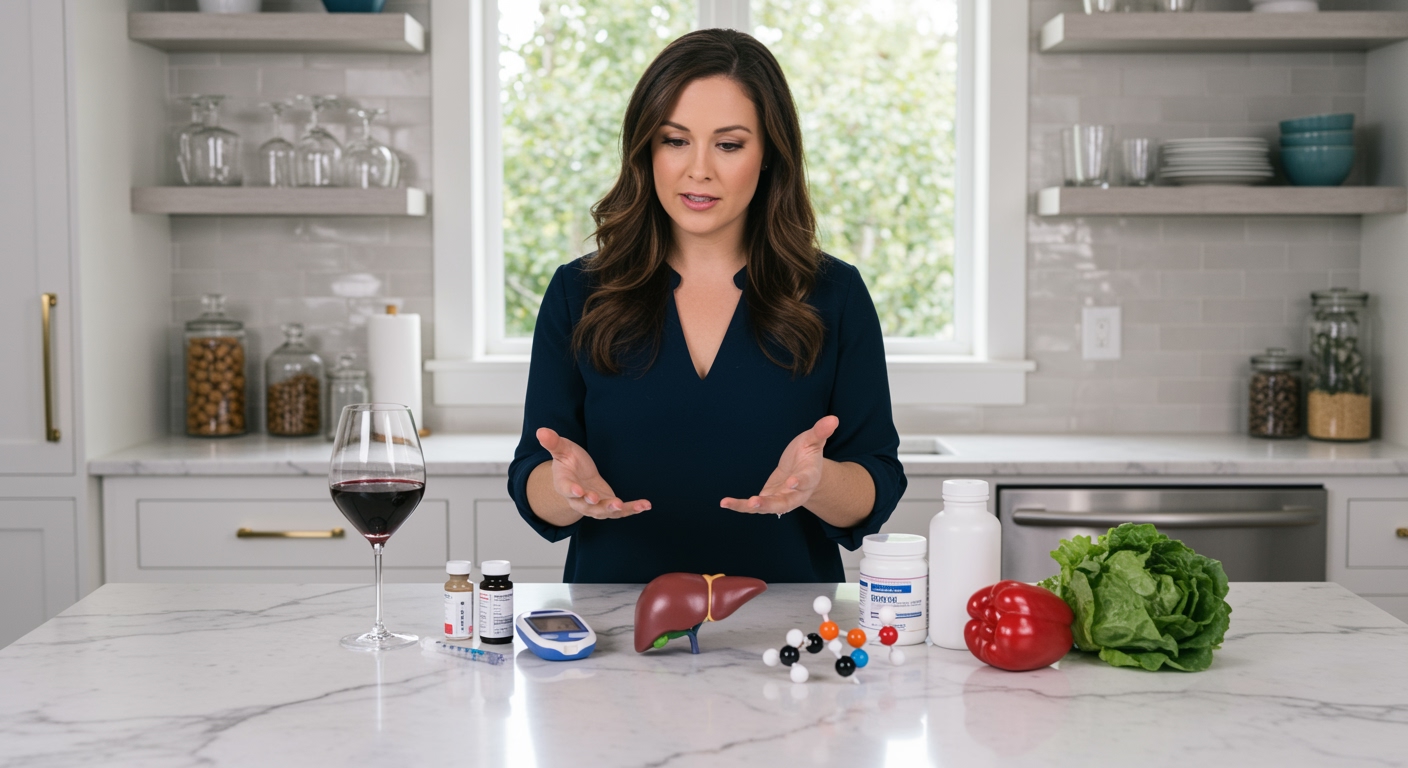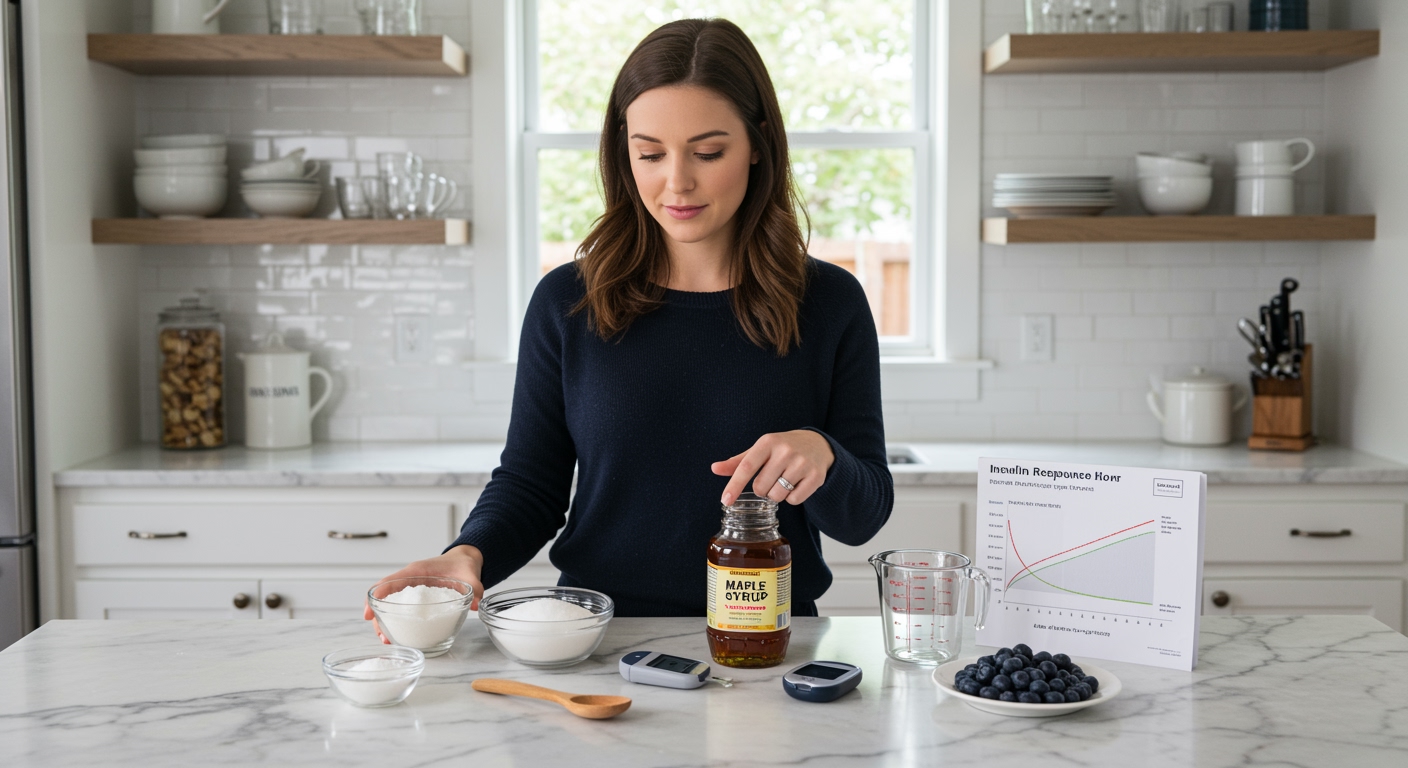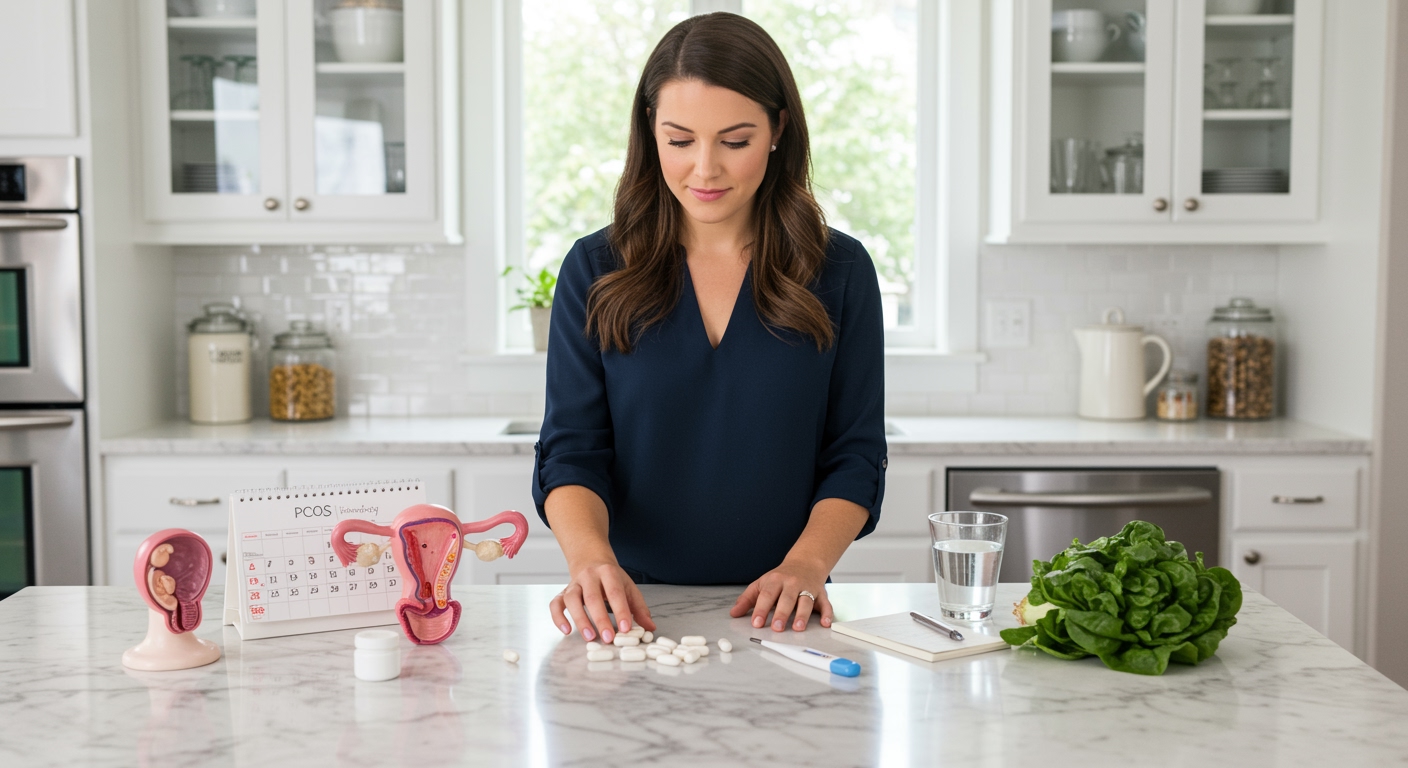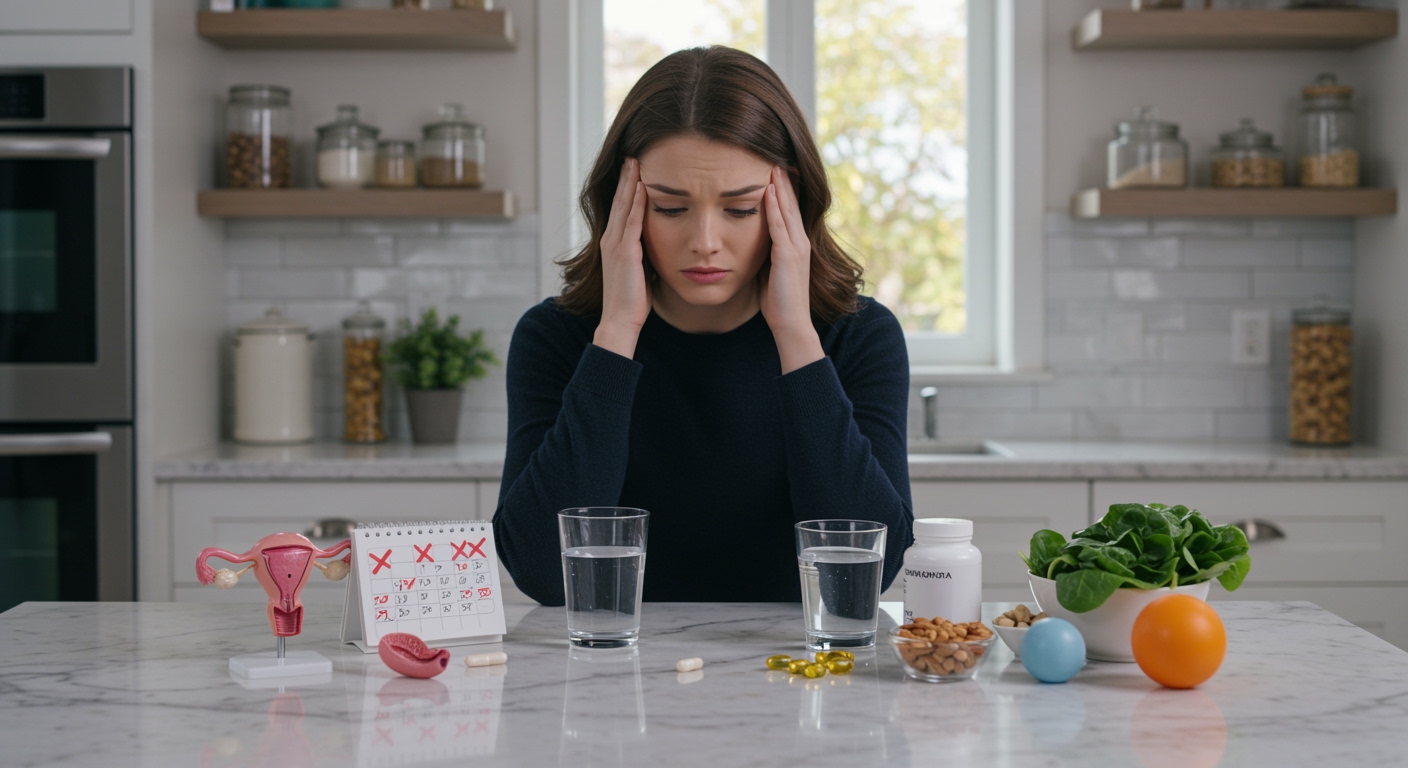✪ Key Takeaway: PCOS women can drink alcohol occasionally, but it may worsen insulin resistance and hormone imbalances.
Introduction
You pour yourself a glass of wine after a stressful day and wonder if this simple pleasure could be sabotaging your PCOS management efforts.
Many women with PCOS feel confused about alcohol because they receive conflicting advice from different sources about whether occasional drinking fits into a healthy lifestyle.
Hi, I am Abdur, your nutrition coach and today I am going to explain exactly how alcohol affects PCOS symptoms and whether you can safely enjoy occasional drinks.
How Does Alcohol Affect Insulin Resistance In PCOS?
Alcohol consumption directly impacts your body’s ability to process glucose and can worsen insulin resistance, which affects up to 70% of women with PCOS.
When you drink alcohol, your liver prioritizes metabolizing the alcohol over maintaining stable blood sugar levels, leading to glucose fluctuations.
Your pancreas responds to these blood sugar swings by releasing more insulin, which can increase insulin resistance over time.
Research shows that even moderate alcohol consumption can reduce insulin sensitivity by up to 20% in women with metabolic disorders like PCOS.
The type of alcoholic beverage matters significantly because sugary cocktails and sweet wines cause more dramatic blood sugar spikes than dry wines or spirits.
Your body stores excess glucose as fat when insulin resistance is present, making weight management more challenging after drinking alcohol.
✪ Fact: Alcohol contains 7 calories per gram, making it the second most calorie-dense macronutrient after fat.
What Impact Does Alcohol Have On PCOS Hormones?
Alcohol disrupts your hormone production by interfering with the delicate communication between your brain, ovaries, and adrenal glands.
Your liver processes both alcohol and hormones, so drinking can slow down the breakdown of excess estrogen and testosterone in your system.
Studies indicate that regular alcohol consumption can increase testosterone levels in women with PCOS by up to 15%, worsening symptoms like acne and hair growth.
Alcohol also affects your cortisol levels by activating your stress response system, which can trigger more androgen production.
Your sleep quality suffers after drinking, and poor sleep disrupts the production of growth hormone and other hormones that help regulate PCOS symptoms.
The combination of elevated androgens and disrupted sleep creates a cycle that makes PCOS symptoms harder to manage effectively.
✪ Pro Tip: Track your PCOS symptoms for 48 hours after drinking to identify your personal alcohol tolerance.
Can Moderate Drinking Fit Into A PCOS Management Plan?
Moderate alcohol consumption means no more than one drink per day for women, which equals 5 ounces of wine, 12 ounces of beer, or 1.5 ounces of spirits.
Some women with well-controlled PCOS can tolerate occasional drinking without significant symptom flares, especially if they maintain stable blood sugar levels.
Your individual response depends on factors like your current insulin sensitivity, medication use, stress levels, and overall metabolic health.
Research suggests that women who drink alcohol 2-3 times per week show better outcomes than those who binge drink once weekly, even with the same total alcohol intake.
You should avoid alcohol completely if you take metformin or other diabetes medications, as this combination increases the risk of dangerous blood sugar drops.
The timing of alcohol consumption matters because drinking with meals helps slow absorption and reduces blood sugar spikes compared to drinking on an empty stomach.
✪ Note: Always consult your healthcare provider before adding alcohol to your PCOS management routine.
Which Types Of Alcohol Are Better Choices For PCOS?
Dry wines contain fewer carbohydrates and sugars compared to sweet wines, making them less likely to spike your blood glucose levels.
Clear spirits like vodka, gin, and tequila mixed with sugar-free mixers provide alcohol with minimal carbohydrate impact on your system.
Light beers typically contain 3-6 grams of carbohydrates per serving, while regular beers can contain 10-15 grams, making light options preferable for blood sugar control.
You should avoid sugary cocktails, flavored liqueurs, and dessert wines because they can contain 20-40 grams of sugar per serving.
Red wine contains resveratrol and other antioxidants that may provide some health benefits, though these do not outweigh the negative effects of alcohol on PCOS.
The key is choosing options that minimize added sugars and carbohydrates while keeping portion sizes within recommended limits for your health goals.
✪ Pro Tip: Use a food tracking app to monitor how different alcoholic beverages affect your blood sugar patterns.
What Are The Warning Signs To Stop Drinking With PCOS?
You should eliminate alcohol if you notice your menstrual cycles becoming more irregular or your periods stopping completely after drinking.
Increased acne breakouts, excessive hair growth, or hair loss within days of drinking indicates that alcohol is worsening your androgen levels.
Weight gain around your midsection or difficulty losing weight despite following your usual diet plan suggests alcohol is disrupting your metabolism.
Blood sugar readings above 140 mg/dL two hours after drinking alcohol indicate that your body cannot handle the glucose load effectively.
Persistent fatigue, mood swings, or sleep disturbances following alcohol consumption show that drinking is interfering with your hormone balance.
If you experience any combination of these symptoms consistently after drinking, complete alcohol avoidance may be necessary for optimal PCOS management.
✪ Fact: Women with PCOS are three times more likely to develop fatty liver disease, which alcohol consumption can accelerate.
The Bottom Line
PCOS women can drink alcohol occasionally, but the risks often outweigh the benefits for most people managing this condition effectively.
Your health is not a negotiation table where convenience gets to make the final decision, and alcohol should never compromise your PCOS management progress.
I encourage you to share your experiences with alcohol and PCOS in the comments below, as your insights could help other women make informed decisions about their health journey.
References
At NutritionCrown, we use quality and credible sources to ensure our content is accurate and trustworthy. Below are the sources referenced in creating this article:
- The PCOS Plate: PCOS and Alcohol
- Smart Fertility Choices: PCOS and Alcohol
- Be Balanced Nutrition: Alcohol and PCOS
- PCOS Nutrition: Alcohol and PCOS
- PCOS Weight Loss: Drink Alcohol with PCOS





